Historical Heritage
Kyushu has many old and beautiful buildings, like castles and shrines. These places show the region's long history and culture.
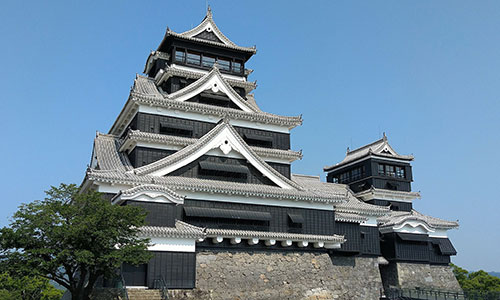
Kumamoto Castle
Kumamoto City, KumamotoOne of Japan's most famous castles, built in 1607. Known for its massive stone walls and black exterior, it played a key role in history. Though damaged by the 2016 earthquake, restoration is ongoing. A great spot for cherry blossom viewing.
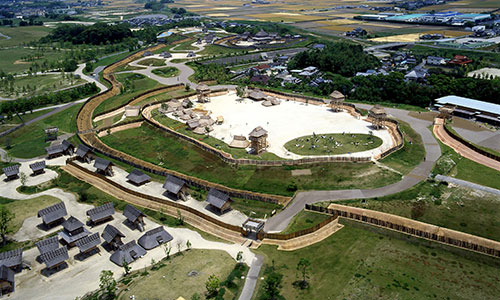
Yoshinogari Ruins
Yoshinogari Town & Kanzaki City, SagaJapan's largest Yayoi-period archaeological site, offering a glimpse into ancient civilization. Features reconstructed dwellings and watchtowers. A must-visit for history lovers.
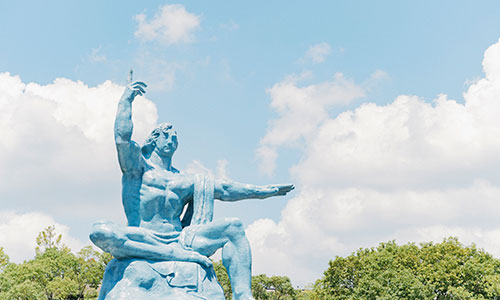
Nagasaki Peace Park
Nagasaki City, NagasakiA memorial park honoring the victims of the 1945 atomic bombing. Features the Peace Statue, memorials, and a museum promoting world peace.
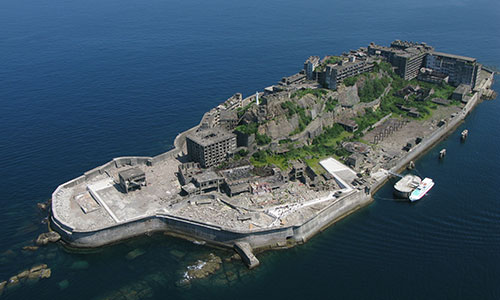
Gunkan Island
Nagasaki City, NagasakiAn abandoned island once a booming coal-mining site, now a UNESCO World Heritage Site. Resembles a battleship and offers guided boat tours.
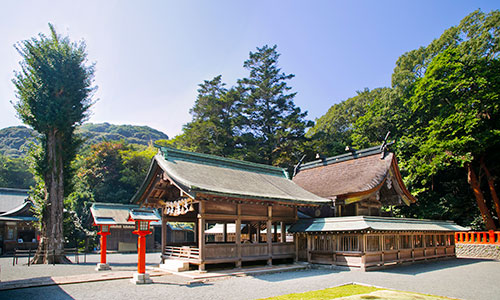
Munakata Shrine
Munakata City, FukuokaA sacred Shinto shrine dedicated to maritime safety. Includes Okinoshima Island, a UNESCO site with ancient rituals.
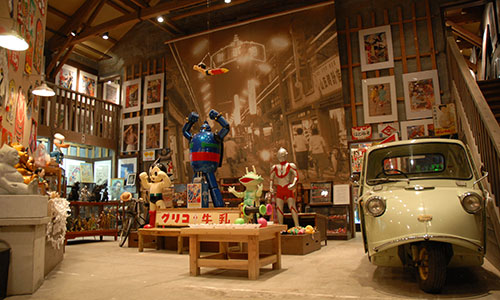
Showa Town
Bungotakada City, OitaA nostalgic town preserving Japan’s Showa-era charm. Features retro-style shops, old cafés, and vintage streetscapes.
Festival
Kyushu has exciting festivals with lanterns, fire shows, and parades. These events bring people together and let visitors enjoy local traditions.
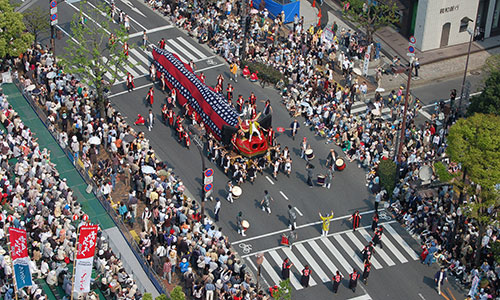
Hakata Dontaku Festival
Fukuoka City, FukuokaIn May
One of the biggest and most exciting festivals in japan. The streets of Fukuoka come alive with colorful parades, traditional dances, and performers dressed in beautiful costumes. Visitors can even join the fun by dancing with wooden rice paddles.
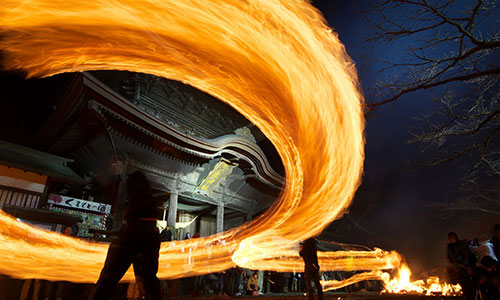
Aso Fire Festival
Aso City, KumamotoIn Mid-March
A thrilling festival where people swing large, flaming torches in circles, lighting up the night sky. This ancient tradition is said to bring good luck and a rich harvest. The sight of glowing fire trails against the dark mountains is unforgettable.
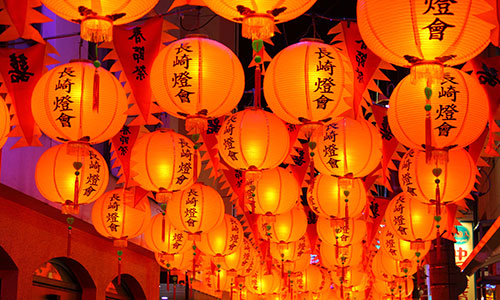
Nagasaki Lantern Festival
Nagassaki City, NagasakiLate January - Early February (Chinese New Year period)
Experience a magical world of over 15,000 glowing lanterns! This festival transforms Nagasaki into a sea of bright colors, with dragon dances, fireworks, and traditional performances.
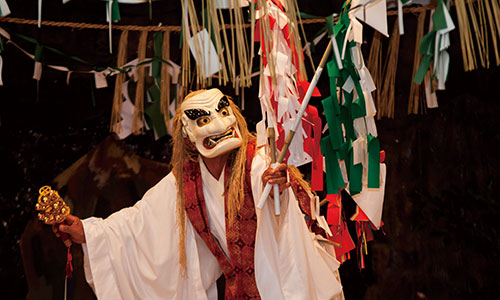
Takachiho Kagura Festival
Takachiho Town, MiyazakiIn Mid-November - Early February
Step into the world of Japanese myths! This special dance performance, held at Takachiho Shrine, tells ancient stories with masked dancers and traditional music.
Art & Crafts
Kyushu is famous for handmade crafts like pottery and textiles. Skilled artisans have kept these traditions alive for many years.
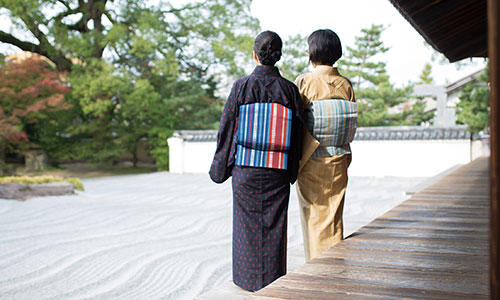
Hakata Ori (Hakata Textiles)
Fukuoka City, FukuokaHakata Ori is a traditional woven textile from Fukuoka with a history of over 770 years. Known for its intricate patterns and durability, it was originally crafted for samurai armor belts. Today, Hakata Ori is used for kimono sashes (obi) and various fashion accessories, blending tradition with modern design.
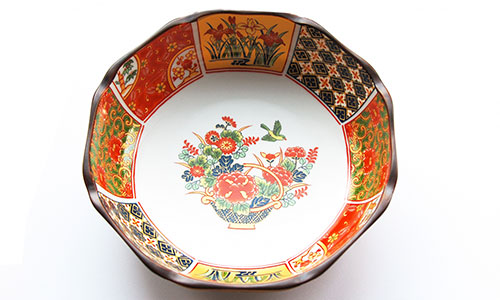
Arita Yaki (Arita Porcelain)
Arita Town, SagaArita Yaki is Japan's first porcelain, produced in Arita since the early 17th century. Famous for its delicate, hand-painted designs and vibrant colors, Arita Yaki was highly valued in Europe during the Edo period. Today, it continues to be a symbol of Japanese ceramic craftsmanship, used for tableware and decorative art.
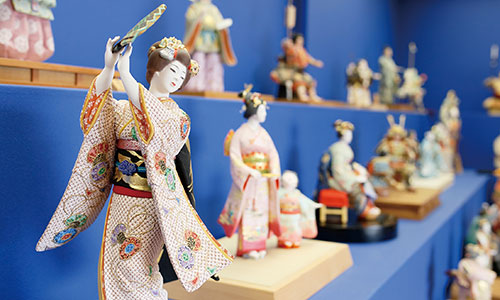
Hakata Ningyo (Hakata Dolls)
Fukuoka City, FukuokaHakata Ningyo are beautifully hand-painted clay dolls, crafted with great attention to detail. These elegant figurines often depict traditional Japanese women, samurai, or kabuki actors, capturing lifelike expressions and intricate designs. Originating in the Edo period, Hakata Ningyo remain a cherished form of Japanese folk art.
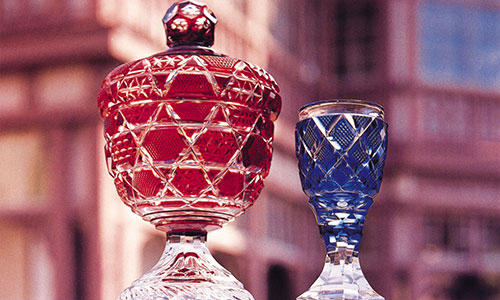
Satsuma Kiriko (Satsuma Cut Glass)
KagoshimaSatsuma Kiriko is a stunning form of cut glass, developed in the 19th century under the rule of the Satsuma clan. This craft is known for its vibrant colored layers and intricate faceted designs, creating a unique brilliance.